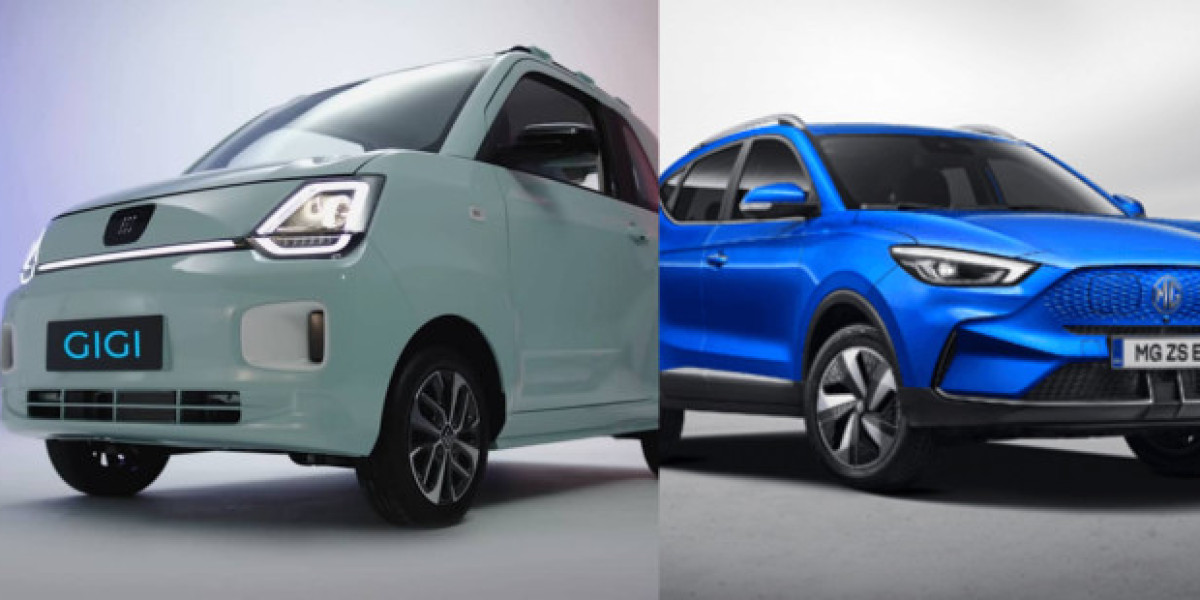Introduction
Electric cars have taken the global automotive industry by storm, offering an eco-friendly alternative to traditional gasoline-powered vehicles. With increasing environmental concerns and technological advancements, many countries are now pushing for a shift towards electric vehicles (EVs). Pakistan, too, has joined the race, with a growing interest in adopting electric cars. But what does the future hold for EVs in Pakistan? In this article, we'll explore the benefits, challenges, and the road ahead for electric cars in Pakistan.
What Are Electric Cars?
Electric cars are vehicles powered by electricity instead of gasoline or diesel. They use electric motors and draw power from batteries that can be recharged by plugging them into an electrical source. There are primarily two types of electric vehicles:
- Battery Electric Vehicles (BEVs): These are fully electric cars with no gasoline engine, relying entirely on electricity for power.
- Plug-in Hybrid Electric Vehicles (PHEVs): These vehicles have both an electric motor and a gasoline engine. They can run on electricity alone for a certain distance before the gasoline engine kicks in.
Benefits of Electric Cars in Pakistan
Environmental Benefits
One of the most significant advantages of electric cars is their positive impact on the environment. By reducing the reliance on fossil fuels, EVs help decrease carbon emissions, which is crucial for a country like Pakistan, where air pollution is a growing concern. Additionally, with the potential integration of renewable energy sources, the environmental benefits could be even more substantial.
Economic Benefits
Electric cars offer lower operating costs compared to conventional vehicles. Electricity is generally cheaper than gasoline, and EVs require less maintenance, as they have fewer moving parts. For Pakistani consumers, this could translate into significant savings over the lifetime of the vehicle.
Technological Advancements
The rise of electric vehicles has spurred innovation in battery technology, making them more efficient and longer-lasting. Moreover, modern EVs come equipped with smart features and connectivity options, enhancing the overall driving experience.
Current State of Electric Cars in Pakistan
Government Policies and Initiatives
The Pakistani government has recognized the importance of electric vehicles and has introduced an EV policy to promote their adoption. This policy includes incentives such as reduced import duties, tax exemptions, and subsidies for EV buyers, making it easier for consumers to make the switch.
Availability of Electric Vehicles in the Market
While the electric vehicle market in Pakistan is still in its infancy, several EV models are already available. Some popular choices include the MG ZS EV, Audi e-Tron, and Nissan Leaf. However, most of these vehicles are imported, which can drive up costs. Local production is still limited, but there are signs of growth as interest in EVs continues to rise.
Charging Infrastructure
One of the critical challenges for electric vehicles in Pakistan is the lack of charging infrastructure. Although some charging stations have been set up in major cities, the network is far from sufficient to support widespread EV adoption. The government and private sector are working on expanding this infrastructure, but it will take time to build a comprehensive network that covers both urban and rural areas.
Challenges Facing Electric Cars in Pakistan
High Initial Costs
One of the primary barriers to EV adoption in Pakistan is the high upfront cost. Electric vehicles tend to be more expensive than their gasoline counterparts, making them less accessible to the average consumer. While long-term savings on fuel and maintenance can offset these costs, the initial investment remains a significant hurdle.
Limited Charging Infrastructure
As mentioned earlier, the charging infrastructure in Pakistan is still in its early stages. The lack of a widespread network of charging stations poses a considerable challenge, especially for those living in rural or remote areas. Without reliable access to charging points, many potential buyers may be hesitant to invest in an electric vehicle.
Lack of Awareness and Education
Another challenge is the general lack of awareness and education about electric vehicles. Many consumers are still unfamiliar with how EVs work, their benefits, and their potential impact on the environment. Misconceptions about the range, battery life, and overall performance of electric cars can also deter people from considering them as a viable option.
Technical Challenges
Electric vehicles come with their own set of technical challenges, such as battery life and range anxiety. Although battery technology is improving, concerns about how far an EV can travel on a single charge remain a significant issue for many potential buyers. Additionally, the availability of maintenance and repair services for electric vehicles is still limited in Pakistan, which could discourage consumers from making the switch.
The Future of Electric Cars in Pakistan
Potential for Growth
Despite the challenges, the potential for growth in Pakistan’s electric vehicle market is substantial. As the government continues to support EV adoption through policies and incentives, and as the charging infrastructure expands, more consumers are likely to consider electric cars. Predictions suggest that with the right initiatives, EV adoption in Pakistan could see significant growth in the coming years.
Role of the Private Sector
The private sector also has a crucial role to play in the development of the electric vehicle market in Pakistan. Several companies are already investing in EV technology, and partnerships between the government and private enterprises could accelerate the growth of this sector. Collaboration in areas like charging infrastructure, vehicle manufacturing, and consumer education will be essential for the successful adoption of electric cars.
Importance of Sustainable Development
Electric vehicles are not just about reducing emissions; they are also a key part of broader sustainable development goals. By embracing electric cars, Pakistan can make significant strides toward a more sustainable future, reducing its carbon footprint and contributing to global efforts to combat climate change. In the long run, the widespread adoption of EVs could bring about considerable environmental and economic benefits for the country.
Conclusion
Electric cars offer numerous benefits for Pakistan, from reducing environmental impact to offering economic savings. However, the road ahead is not without its challenges. High initial costs, limited charging infrastructure, and a lack of awareness are significant hurdles that need to be addressed. With continued efforts from both the government and the private sector, there is a promising future for electric vehicles in Pakistan. As the country moves towards a more sustainable future, electric cars will play a crucial role in reshaping the automotive landscape.



